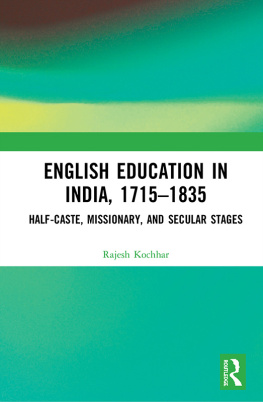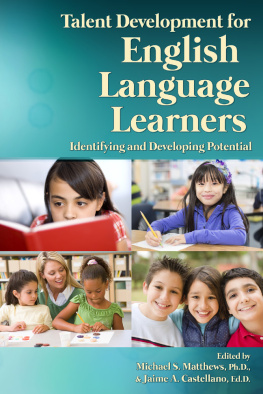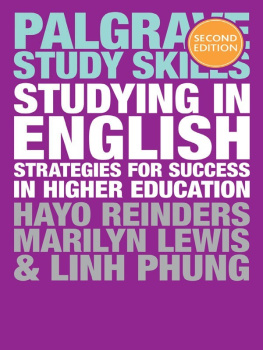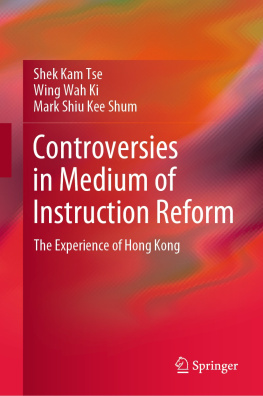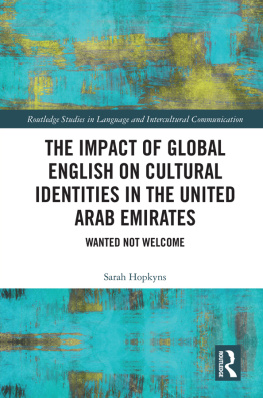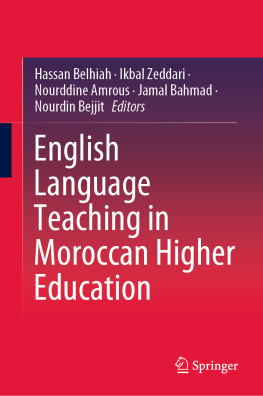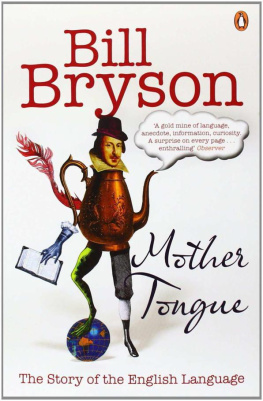"Sankrant Sanu's book through its clear analysis shows that English- medium education cuts out the masses from education, stifles creativity, and is perhaps the reason for India's backwardness. This education, originally designed by the British to rule over India, has ended up creating an elite class and alienating the masses.
It represents an aspect of colonialism in which not only Indian languages, but also Indian tradition, culture and civilizational learnings are not understood or downgraded. It creates a deep rooted sense of inferiority among Indians even today, seventy years after the British left."
Rajeev Sangal
Director and Professor of Computer Science Indian Institute of Technology (BHU), Varanasi
I am happy that at least a few concerned scholars like Sankrant Sanu are valiantly putting forth the idea that study in the native language is critical for a childs and even for adult growth and development, both materially and psychologically. One of the highlights of my childhood education was discovering the system of chhandas in Telugu poetry, which has absorbed many of these ideas from Sanskrit, and has associated with it many computational aspects such as binary notation, use of error codes and even investigated, for possibly the first time, an algebraic structure such as a de Bruin sequence. The current education system seems to have taken these out of current syllabus to the impoverishment of Indian minds while the political system seems to play football with the language issue. For the sake of the future generations, I do hope that our society pays careful attention to the issues Sankrant is raising."
K Gopinath
Professor of Computer Science & Automation Indian Institute of Science, Bangalore
"No nation had risen to great heights of literacy by educating itself in a foreign tongue. With our obsession with English, we have been neglecting Indian languages and Indian language medium of instruction for a long time. An enormous amount of innovation and effort must take place in education conducted in Indian language media. Sankrants book must be a wakeup call for policy makers in our education system."
Srinivasa Chakravarthy
Inventor of the Bharati Script
Professor of Computational Neuroscience Indian Institute of Technology Madras
English Medium Myth shows a mirror to people in India. Today most people in India have accepted this myth as fact. This book will be very useful in providing them with a proper direction.
Atul Kothari
National Secretary, Shiksha Sanskriti Uthan Nyas
"I come across so many young people held back due to the language barrier. An important book for India, for our youth to realize their true potential."
Nomesh Bolia
Associate Professor of Mechanical Engineering Indian Institute of Technology, Delhi
The spell of English medium, which seems to have mesmerised Indians, needs to be broken as early as possible. This book by Sankrant Sanu, backed up by reasoning as well as data, is a brave attempt to initiate the discussion about the inconvenient truth that we, as a nation, have been ignoring so far.
Anurag Tripathi
Assistant Professor of Chemical Engineering, Indian Institute of Technology, Kanpur
Copyright 2014-2018
Sankrant Sanu
All rights reserved. No part of this publication may be reproduced or transmitted in any form or by any means, electronic or mechanical, including photocopying, recording, or any information storage or retrieval system, without prior permission in writing from the publishers.
No responsibility for loss caused to any individual or organisation acting on or refraining from action as a result of the material in this publication can be accepted by Garuda Prakashan or the author.
The content of this book is the sole expression and opinion of its author, and not of the publisher. The publisher in no manner is liable for any opinion or views expressed by the author. While best efforts have been made in preparing this book, the publisher makes no representations or warranties of any kind and assumes no liabilities of any kind with respect to the accuracy or completeness of the content and specifically disclaims any implied warranties of merchantability or fitness of use for a particular purpose.
The publisher believes that the content of this book does not violate any existing copyright/intellectual property of others in any manner whatsoever. However, in case any source has not been duly attributed, the publisher may be notified in writing for necessary action.
Second Edition
Cover Design: Rakesh Chaudhary
Published by
Garuda Prakashan Private Limited
Gurugram, India
www.garudaprakashan.com
www.garudabooks.com
To the children of Khandodra village,
who opened my eyes.
And to the youth of India
For their success.
Foreword
F or more than half a century, psychologists and educationists have suggested that comprehension involves correspondence between language form and the situation it describes. When you understand a sentence, you are supposed to know what it means. It follows that the form that this knowledge takes in memory (conceptual structure) and the process by which it is retrieved and used (cognitive operations), shape our understanding of the world around us, and language serves merely as a vehicle or an adaptation by which meaning learning is achieved. This, the specialists claim, is the basis of the theory of minda gamut of divergent but interconnected mass of information processing that can help us with comprehension.
Indeed, the acquisition of concepts in any subject plays an important role in school education. In this context, most learning is dependent on verbal and other form of academic interactions, aided by languages role in symbolic and representational learning. The context of school education and higher education in particular, language and its symbolic representation of knowledge are the focal points in complex cognitive functioning; hence language assumes a dominant role in education.
For some years now, the claims of language being a left hemisphere dominated activity has been discounted in favor of a more distributed processing capacity. Recent evidence from neuroscience also suggest that grammatical knowledge gained in the first language (which in most cases is the mother tongue) is mediated by distinct neural systems that are efficient because of its distribution throughout the cortex. Several functional magnetic resonance imaging (fMRI) studies have reiterated that in the event of any concept or content being acquired through the mother tongue, it is more stable and robust. The inherent complexity of the ecology of education (the study of relationships between various forces in the physical environment in the teaching-learning context) necessitates an examination of its context as a central requirement. Contextual learning cannot be suddenly reduced nor can it be pushed aside hence mother tongue, in which one is maximally proficient. Language learners bring a lot of their knowledge systems from their mother tongue, and these must be utilized to the fullest, to gain control of conceptual understanding. The disparity between what they know and what they are supposed to imbibe, can be reduced by focusing on the education being imparted in the mother tongue. Most developed nations like Japan, Germany, Korea and Russia to name a few, have successfully utilized education in the mother tongue, to reap rich harvests in educational benefits. The curriculum that has been designed in the mother tongue therefore provides us a rich instructional paradigm to address the issue first hand.
Next page

